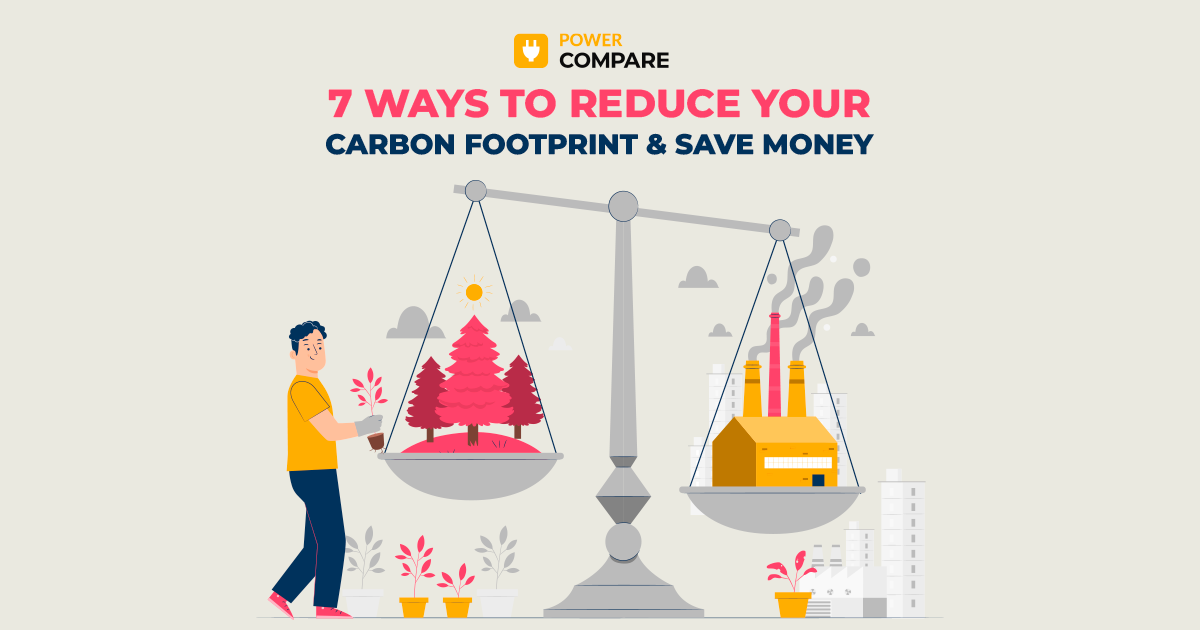7 Ways to Reduce your Carbon Footprint and Save Money

The end of winter can bring about eye-watering power bills, thanks to our typically higher power use. What with using our heaters more, and adding dehumidifiers and electric blankets to our routines to ward off moisture and cold nights. However, there are plenty of ways you can reduce the amount of power your household consumes, without compromising on your comforts while we transition into spring, and frost still lingers in the air. As climate change continues to become a problem, lowering your power consumption is a great way to reduce your impact on the environment by lowering your fossil fuel emissions, while simultaneously helping your wallet!
What are Fossil Fuels?
In New Zealand, our electricity comes from both renewable and non-renewable sources of energy. Fossil fuels are non-renewable energy sources and we generate electricity by burning coal, oil and natural gas. However, these resources are not constantly replenished like renewable sources of energy – such as solar and wind energy. When burned, fossil fuels also emit greenhouse gases, such as carbon dioxide, into the atmosphere, which is harmful to the environment. By reducing the amount of energy you consume, you can reduce the fossil fuels you use and help protect our environment.
We have rounded up our top 7 ways to reduce your power consumption and carbon footprint, so you can save money.
1. Invest in Energy Efficient Appliances
If you have an old fridge or heater sitting around in your house, it may be the culprit for those higher energy bills because older appliances gobble up electricity. If you are in the market for a new household appliance, such as a new fridge, chest freezer, washing machine, or heat pump, consider investing in a unit with a high energy star rating. This means that it is energy efficient, and will use less energy to do its job. These modern appliances will save you money on electricity in the long run.
2. Choose Cold Water
Did you know that hot water can consume a lot of energy? Run your washing machine on the cold water setting to save money on electricity. You will help protect the integrity of your clothes and avoid consuming more power than necessary. Save your hot water washes for after a bout of the cold or flu, when you want to give your bed sheets a good antibacterial wash and refresh. Don’t forget to air dry your laundry rather than use the dryer when the weather is good.
3. Unplug Devices When Not Using Them
When you are not using your devices and appliances, be sure to switch them off or unplug them at the wall. Vampire power is a sneaky consumer of power. It is the tiny amount of power consumed by appliances when you are not using them – for example, your TV will use electricity to keep the remote control sensor working, and the red LED light shining. So, turn off your coffee machine at the wall after you have brewed a cup, and switch off your phone charger at the wall. While this may seem insignificant, you can make a difference to your electricity bill!
4. Change the Way You Eat
Another effective way to lower your carbon footprint is to try to implement plant-based meals into your dinner or lunch rotations. The production of meat produces a lot of carbon dioxide. You can make swaps that are not only nutritious and tasty, but that are a lot cheaper, for example, swap chicken breasts for a tin of chickpeas. Trying a few vegetarian meals throughout the week is a fun way to get creative with your cooking, and experiment with different ingredients and flavours, while saving money in the process!
5. Consider Solar Power
If you have the means, solar power is an incredible long term solution to decreasing your carbon consumption and lowering your power bill. Solar panels are a true investment that can generate enough renewable, clean electricity to cut your monthly power bill in half, or even cover the entire bill. Solar panels can last 20 to 30 years and can save you hundreds of dollars a year on power.
6. Start a Compost
This is a wonderful way to help divert food waste from landfills. Grab yourself a trusty compost bin, and use it to dispose of your food waste. When food waste goes to the landfill, it generates greenhouse gases as it breaks down. Whereas composted materials do not and the result is a rich organic matter that can be used for fertilising your garden.
7. Start a Vegetable Garden
A vegetable garden is another long term solution to lowering your carbon footprint and saving money. Dealing with fresh produce from the grocery store consumes energy – such as the groceries being transported from farms to the stores, and your petrol you consume getting there and back. By planting your own vegetables and caring for them over time, you will have yummy veggies to harvest for years to come, which will save you money on fresh produce at the grocery store.
Compare Power
Another effective way to save money is to compare your power bill. Power Compare makes it easy to compare power plans and providers available to you. You can save a lot of money over a year by switching to a different plan that offers more value for money and a better deal. Make a fully informed choice and unlock savings today!

